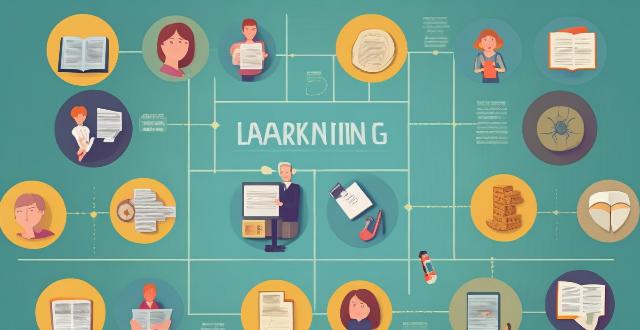Lifelong learning, a process of continuous and voluntary learning throughout one's lifespan, offers numerous benefits that positively impact an individual's personal and professional life. These include improved cognitive abilities, increased self-esteem and confidence, personal fulfillment and satisfaction, enhanced career opportunities, higher earning potential, greater professional network, economic growth, social inclusion and cohesion, and environmental sustainability. By embracing the concept of lifelong learning, individuals can lead richer, more fulfilling lives while contributing positively to society as a whole.

The Benefits of Lifelong Learning
Lifelong learning is a process of continuous and voluntary learning throughout one's lifespan, often for personal enrichment or to maintain employability. It involves acquiring new knowledge, skills, and attitudes through various means such as formal education, informal education, self-directed learning, and on-the-job training. The benefits of lifelong learning are numerous and can positively impact an individual's personal and professional life.
Personal Benefits
Improved Cognitive Abilities
Continuous learning helps to keep the brain active and engaged, which can enhance cognitive abilities such as memory, problem-solving, and critical thinking. This can lead to a reduced risk of developing cognitive decline or degenerative brain diseases like Alzheimer's later in life.
Increased Self-Esteem and Confidence
As individuals acquire new skills and knowledge, they gain confidence in their abilities. This increased self-esteem can lead to a more positive outlook on life and better mental health.
Personal Fulfillment and Satisfaction
Learning new things can be intrinsically rewarding, providing a sense of accomplishment and satisfaction. It can also help individuals discover new interests and hobbies, leading to a more fulfilling life.
Professional Benefits
Enhanced Career Opportunities
In today's rapidly changing job market, lifelong learning is essential for maintaining employability. By continuously updating their skills and knowledge, individuals can adapt to new technologies and industry trends, making them more attractive to employers.
Higher Earning Potential
Individuals with advanced education or specialized skills often have higher earning potential than those without. Lifelong learning can lead to promotions, salary increases, and better job security.
Greater Professional Network
Participating in educational programs and training sessions provides opportunities to meet new people and expand one's professional network. This can lead to collaborations, partnerships, and business opportunities down the line.
Societal Benefits
Economic Growth
A highly skilled workforce is crucial for economic growth and development. Lifelong learning contributes to this by ensuring that workers are equipped with the necessary skills to drive innovation and productivity.
Social Inclusion and Cohesion
Education promotes social inclusion by breaking down barriers based on gender, race, ethnicity, and socioeconomic status. Lifelong learning encourages diversity and fosters a sense of community among learners from different backgrounds.
Environmental Sustainability
Educated individuals are more likely to understand the importance of environmental sustainability and take actions to protect the planet. Lifelong learning can play a role in promoting sustainable practices and reducing our ecological footprint.
In conclusion, lifelong learning offers numerous benefits that extend beyond personal growth and development. It contributes to professional success, economic prosperity, social cohesion, and environmental sustainability. By embracing the concept of lifelong learning, individuals can lead richer, more fulfilling lives while contributing positively to society as a whole.